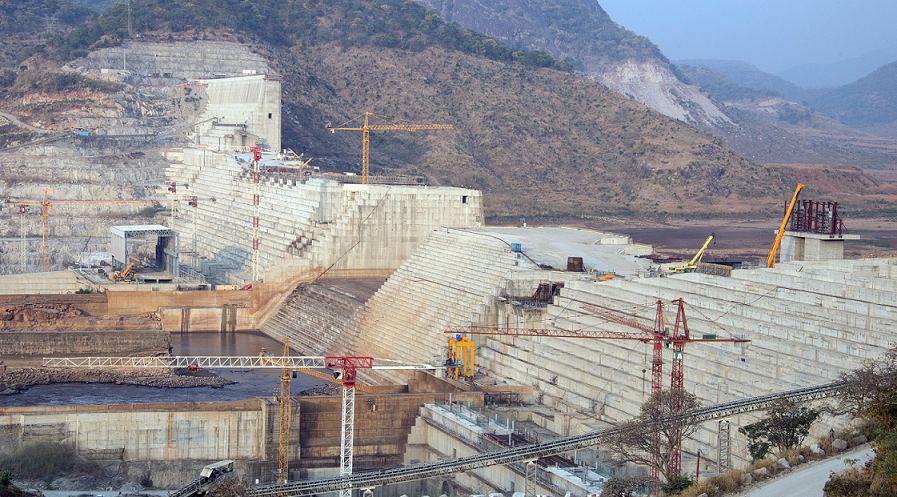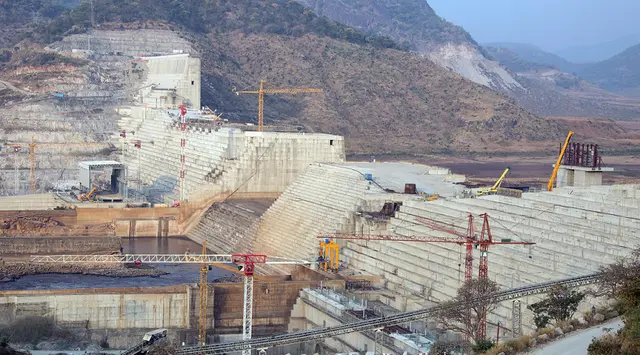
FILE PHOTO: Building site machines stand on the construction site of the Grand Ethiopian Renaissance Dam in Guba in the North West of Ethiopia, 24 November 2017. /Getty Images
Ethiopia has asked the United States to postpone what was expected to be the final round of talks on the giant Blue Nile hydropower dam, it said on Wednesday, delaying the potential resolution of a dispute that sparked a years-long diplomatic crisis.
"We have asked that we need more time for consultation," Bizuneh Tolcha, spokesman for Ethiopia's ministry of water, irrigation and energy told Reuters, without providing details.
The dispute over what will be Africa's largest hydroelectric dam pits Ethiopia's desire to pull millions out of poverty against Egypt's concerns over losing critical water supply.
Ethiopia will skip the talks in Washington on Thursday and Friday "because the country's delegation hasn't concluded its consultation with relevant stakeholders," the ministry of water, irrigation and energy said on its Facebook page. "The decision has been communicated with the U.S. Treasury secretary."
The announcement came amid widespread concerns in Ethiopia that its delegation has been pressured by the U.S. to reach a deal on the $4.6 billion dam that is nearing completion. The U.S. became involved in the talks after Egypt's invitation.
Egypt, Ethiopia and Sudan said on Jan. 31 they would sign an agreement by the end of this monthbut U.S. Secretary of State Mike Pompeo said in his Ethiopia visit last week that anagreement now might take monthsas "a great deal of work remains."
Ethiopia is building the dam near its border with Sudan on the Blue Nile, which flows into the Nile river – the main water source for Egypt's 100 million-strong population. The dam is the centerpiece in Ethiopia’s bid to become Africa's biggest power exporter.
There was no immediate comment from Egypt and Sudan.
After last month's talks, the nations said they had agreed on a schedule for staged filling of the dam and mitigation mechanisms to adjust its filling and operation during dry periods and drought.
But the nations still have to finalize details on several aspects of the dam, including its safety and provisions for the resolution of disputes, the statement said.
Source(s): Reuters
 简体中文
简体中文





